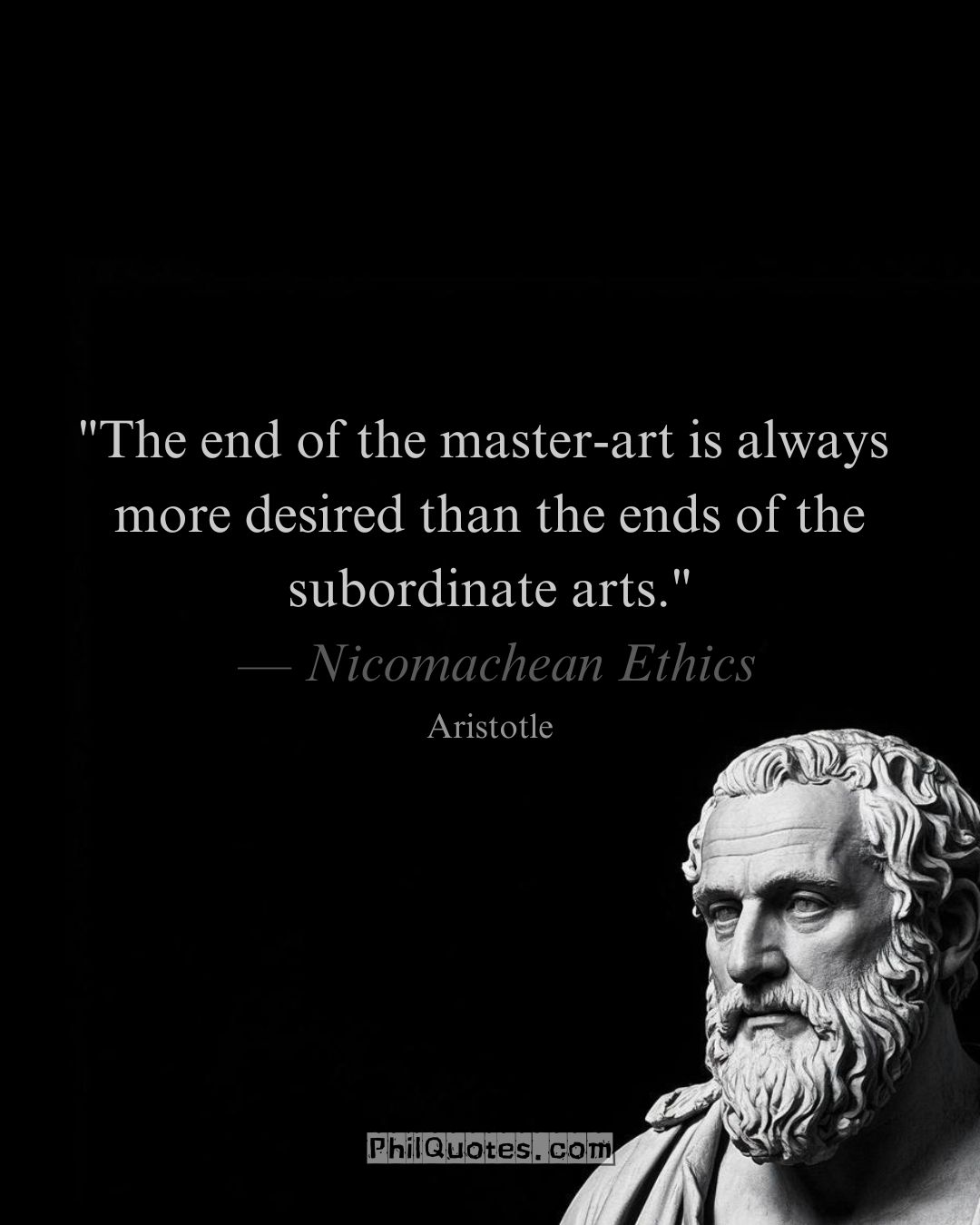
“The end of the master-art is always more desired than the ends of the subordinate arts.”
— Aristotle, Nicomachean Ethics, Book I, Chapter 1
Simple Explanation:
Aristotle compares life’s goals to arts (skills/pursuits). Subordinate arts (e.g., cooking, carpentry) serve immediate needs, but the master-art (living virtuously) is the ultimate aim that gives all other goals meaning.
Real-World Connection:
① Building a House →
You learn carpentry (subordinate art) → craft furniture (end: comfort) → design a home (higher art) → create a space for family bonding (master-art end: love/connection).
② Running a Business →
You master accounting (subordinate art) → track profits (end: wealth) → grow a company (higher art) → provide jobs and innovate (master-art end: societal contribution).
③ The Hidden Hierarchy →
Even “small” skills matter — but true fulfillment comes when subordinate ends (money, comfort) fuel the master end: eudaimonia (living wisely and justly).